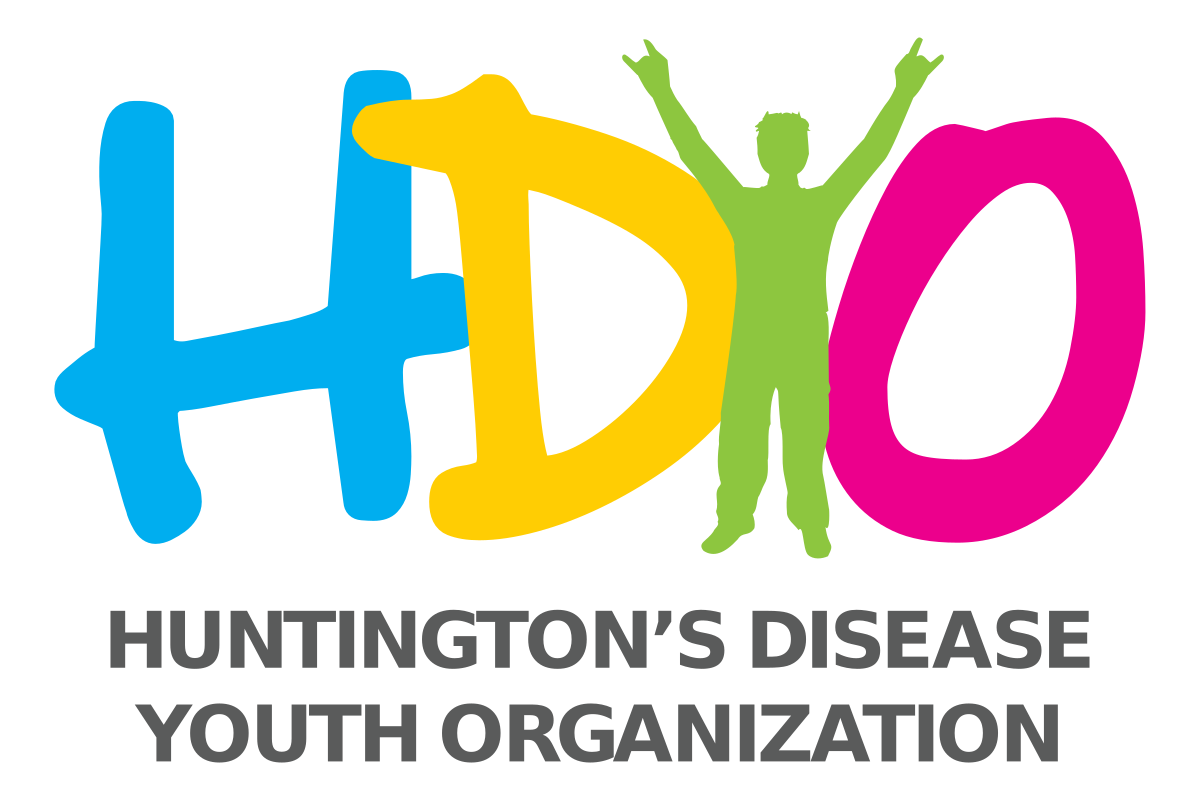Conversation Starters for Young People
June 24, 2024

HDYO has more information about HD available for young people, parents and professionals on our site:
www.hdyo.org
*Reviewed by Education and Research Committees 2024
If you are a professional who finds it difficult to start conversations with young people who are coping with Huntington’s Disease, you are not alone! Many professionals in the HD community struggle to effectively communicate with young people impacted by HD. In order to help, HDYO has developed conversation starters and tips for professionals.
When working with young people in the HD community, it is important to include parents/guardians and other support systems such as schools, clubs, or faith-based organizations.
It is also important to be reminded that each young person’s journey is different. You may need to adjust and customize your approach depending on the emotional needs and intellectual maturity of the young person.
The following serves as a general guide to working with young people impacted by HD. This section It is divided into age groups and includes the following: characteristics of each age group, conversation starter tips and resources. Moved from above as makes more sense here.
Kids (Under 13 years old)
Characteristics
- Playful and Imaginative: Kids often engage in imaginative play and enjoy exploring their creativity.
- Curious and Inquisitive: They have a natural curiosity about the world around them and ask many questions to satisfy their curiosity.
- Developing Social Skills: They are learning how to navigate social interactions and friendships, often experimenting with different social roles.
- Concrete Thinkers: Their thinking tends to be concrete and literal.
- Emotional Sensitivity: Kids may experience a wide range of emotions and may have difficulty regulating their emotions without adult guidance and support.
Conversation starter tips working with kids
1. Use Age-Appropriate Language
Tailor your language and explanations to the young person’s age and developmental stage, ensuring they can understand the information without feeling overwhelmed. Here are some suggestions on the language to be used with kids:
- Simple and concrete language: Use straightforward and easy-to-understand language, avoiding complex terms or abstract concepts.
- Concrete examples: Provide concrete examples or visual aids to help illustrate your points and make concepts easier to grasp. For example, we created HDYO Land that is an interactive way for children to learn about HD including visual aids.
- Gentle and reassuring tone: Use a gentle and reassuring tone of voice to convey warmth and support, especially when discussing sensitive topics.
2. Start with Empathy
Begin conversations with a compassionate and understanding approach. Acknowledge the challenges the child may face due to HD.
3. Encourage Questions
Create a safe space for the kid to ask questions about HD. Be prepared to answer questions honestly and provide reassurance.
4. Focus on Strengths
Highlight the child’s strengths and abilities. Reinforce their sense of identity beyond living in a family impacted by HD.
5. Include Play
Incorporate play or creative activities into conversations to help children process emotions and express themselves.
6. Provide Age-Appropriate Resources
Offer books, videos, or other resources that explain HD in a way that children can understand.
Resources
The Kids section on the HDYO website has several resources:
Topics for Kids
- What You Can Do for Someone with HD
- Top Tips for Helping a Person with HD - for Kids
- Visiting a Care Home: Things You Can Do to Help
Activities
- HDYO Land - an interactive, colorful and fun program aimed at helping children learn about HD
- Coloring Pages
Video
Teens (Ages 13 – 18)
Characteristics
- Identity Formation: Teens are exploring and developing their sense of self, including their values, beliefs and interests.
- Peer Influence: Peer relationships become increasingly important during adolescence. Teens may be heavily influenced by their peers in terms of behavior, interests and attitudes.
- Emotional Intensity: Adolescence is marked by intense emotional experiences, including mood swings, heightened sensitivity and a search for autonomy.
- Risk-Taking Behavior: Teens may be impulsive as they seek independence and test boundaries. This behavior might lead to experimentation with substances, relationships and other risky activities.
- Cognitive Development: Teens are capable of more abstract thinking and reasoning compared to younger children, but they may still struggle with decision-making and impulse control.
Conversation starter tips working with teens
1. Use Age-Appropriate Language
Tailor your language and explanations to the young person’s age and developmental stage, ensuring they can understand the information without feeling overwhelmed. Here are some suggestions on the language to be used with teens:
- Clear and concise language: Use clear and concise language, avoiding jargon or overly technical terms that may confuse teenagers.
- Here is an example of how to use clear and concise language to support a teen who is dealing with their mom’s diagnosis: “I know your Mom was recently diagnosed with Huntington's disease. I wanted to speak with you more about that. She was born with the gene that causes it and this is now beginning to make her ill. It has affected her muscles and brain. Because of this condition, she may have a hard time doing certain things. She may forget to do things she promised to do. Her hands may shake sometimes. She may become very angry and you won’t know why. Have you noticed any of these things?”
- Respectful and non-condescending tone: Treat teenagers with respect and avoid talking down to them, acknowledging their maturity and intelligence.
2. Respect Privacy
Respect the teenager’s privacy while still offering support and information about HD. Allow teens to share what they feel comfortable discussing.
3. Validate Feelings
Acknowledge the teen’s emotions and validate their experience coping with HD in the family. Offer empathy and understanding.
4. Encourage Independence
Support teenagers in developing skills for managing themselves independently. Empower them to take control of their health, mental health and well-being.
5. Provide Information
Offer accurate and age-appropriate information about HD, including its symptoms, progression and available treatments.
6. Promote Peer Support
Connect teenagers with support groups or peers who are also impacted by HD. This will help to provide a sense of community and understanding.
7. Explore Future Planning
Discuss future planning and decision-making regarding healthcare and life goals. This will help them feel prepared and in control of their future.
8. Offer Coping Strategies
Teach teenagers coping strategies for managing stress, anxiety and other emotions associated with HD. Some examples are breathing exercises, mindfulness and journaling.
Resources
The Teens section on the HDYO website has several resources. Appropriate topics for discussion at HDYO Teens Section including the following topics:
- Genetic Testing
- How Does HD Affect People?
- Being at Risk
- New to HD?
- What is Huntington's Disease?
- Feeling Embarrassed
- What You Can Do for Someone with HD
- Being a Young Carer
- Relationships
- Living in a Family with HD
- Loss & Bereavement
- Top Tips for Helping a Person with HD - for Teens
- Coping
- Talking About HD with Family and Friends
- Emotional Wellbeing
- Visiting a Care Home
- History of HD
- What Does It Feel Like to Have HD?
- The HD Gene: Under the Microscope
- Links
- Bullying
Activities and conversations to engage with teens
Useful videos
- What is Huntington's Disease?
- Huntington's Disease Young People - Do You Know Your Rights?
- Huntington's Disease - The Impact on Young People
- Huntington's Disease-Being a Young Carer & the Impact of HD-Marthe's Story
Young Adults (Ages 19-35)
Characteristics
- Identity Exploration: Young adults continue to explore and refine their identity, making significant life decisions related to education, career and relationships.
- Independence and Autonomy: This age group seeks independence from family members and may be beginning to establish their own households, careers and social circles.
- Career and Education Focus: Young adults might be focused on pursuing higher education or establishing themselves in their chosen career paths.
- Formation of Long-Term Relationships: Young adults might begin to form more stable and committed romantic relationships and friendships during this stage of life.
- Financial Independence: As young adults transition into the workforce, they might strive for financial independence and may face challenges related to budgeting, saving and managing finances.
- Family Planning Implications: Young adults who have inherited the HD gene might begin to HD face complex family planning decisions. They may start to think about having children and can benefit from genetic counseling including options such as adoption, surrogacy and in vitro fertilization (IVF).
Conversation Starter Tips for Young Adults
1. Use Age-Appropriate Language
Tailor your language and explanations to the young person’s age and developmental stage, ensuring they can understand the information without feeling overwhelmed. Here are some suggestions on the language to be used with young adults:
- Straightforward and informative language: Use straightforward and informative language, providing clear explanations without unnecessary detail. Here is an example of using straightforward and informative language to explain the HD implications of family planning to a young adult: “HD is a genetic condition that can be passed down from a parent to child. Since your parent has HD, there's a 50% chance you may have inherited it too. Some people chose to find out if they have the gene for HD. If you are interested in learning more about this, we can connect you with health care experts who can talk to you about genetic testing for HD. Testing for HD is a big decision and you don’t need to decide about this right away. A good first step is to talk to experts who can help guide you”.
- Respectful and professional tone: Maintain a respectful and professional tone, recognizing young adults as capable and independent individuals.
2. Facilitate Open Communication
Create a space for open and honest communication about HD. This allows young adults to express their thoughts, concerns and goals in a safe environment.
3. Focus on Self-Advocacy
Encourage the young adult to advocate for themselves in healthcare settings. This empowers them to communicate their needs and preferences to medical professionals.
4. Provide Supportive Resources
Offer information about support services, financial assistance and community resources available to young adults impacted by HD.
5. Explore Career and Education Goals
Discuss the young adults’ career and education aspirations. Provide guidance on how to pursue these goals while coping with HD in the family.
6. Focus on Relationships
Address the impact of being part of an HD family on relationships, including romantic partnerships, friendships, and family dynamics, offering support and guidance as needed.
7. Encourage Wellbeing Practices
Emphasize the importance of self-care and wellbeing practices, such as exercise, nutrition and stress management.
8. Empower Decision-Making
Support young adults in making informed decisions about their healthcare, living arrangements, and future plans, while respecting their autonomy and preferences.
Resources
The Young Adult section on the HDYO website has several useful resources. Appropriate topics to discuss on the HDYO Young Adult Section including the following topics:
- Genetic Testing
- HDYO Survey Series
- Being at Risk
- How Does HD Affect People?
- NEW TO HD?
- What is Huntington's Disease?
- Having Children
- Feeling Embarrassed
- Relationships
- Top Tips for Helping a Person with HD
- Living in a Family with HD
- Genetic Testing Checklist
- Loss & Bereavement
- Being a Young Carer
- Coping
- Visiting a Care Home
- Talking About HD with Family and Friends
- Emotional Wellbeing
- What Does It Feel Like to Have HD?
- History of HD
- Research Video Series
- The HD Gene: Under the Microscope
- Links
- Bullying
- Planning for End of Life
- Dealing with a Diagnosis
- Know Your Rights
Activities and conversation starters examples for young adults
Useful videos
- Huntington's Disease - Young Couples Impacted
- HDYO Webinar Series: Family Planning
- Preparing for Genetic Testing
- Tony - Having children free of HD
Parent/Guardian’s Involvement
When providing support for young people impacted by HD, it is crucial for professionals to consider how to involve parents/guardians. Learn more here.



